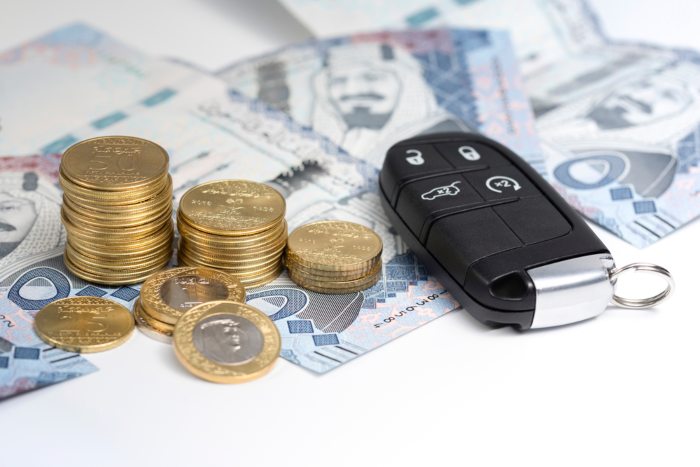
The term “Islamic Car Finance” appears at first as if it were a model aimed exclusively at Muslims. But this is not true: the Islamic concept of finance is also interesting to non-Muslims. Because Islamic car finance is not about religiosity, it is about ethical principles of financial transactions.
Imagine that you want to buy a luxurious new car. Well, you don’t have enough money. So, what do you do?
The solution: is to buy in installments. So you will go to the bank and get a loan. is not it? Here a question arises: Why is the purchase not done in installments according to the principles of Islamic Sharia?
Islamic Car Finance
There is no classical lending in Islamic banks. Instead, the Islamic bank buys the car for the customer and resells it to him at a slightly higher price. He does not have to pay immediately but within a certain period.
- You do not have a loan agreement, but a purchase agreement.
- You made a real economic deal. The bank has bought and resold it to you.
- You have made a profit margin for the bank. Of course, this includes the element of interest, which is associated, however, with a real economic transaction and not with an exchange of token amounts of money.
Another form would be some kind of joint venture or partnership, for example, if someone wants to start a business. In this case, the entrepreneur and the bank would divide the income from this transaction between them. Unlike the traditional financial system, an Islamic bank always shares the risks in all transactions.
Islamic economic thought
Islamic economic thought is based on clear religious principles. The most famous of these is the so-called prohibition of usury, that is, the prohibition of interest on money: no one is allowed to claim interest simply for lending money.
Another is the so-called zakat, which is usually translated as zakat tax. Zakat is a tax used by government agencies to fund the needy or social projects.
The third pillar is called Gharar: “It is related to the fact that contracts of a highly speculative nature are prohibited.” In addition, games of chance such as the classic lottery are prohibited: “In the classic lottery, many people pay, but only one win and the rest look stupid. Apart from addiction and gambling.
Of course, you can only invest in Sharia-compliant companies. The “ban companies” come from the porn, weapons, pork, and alcohol industries.
Islamic car finance transactions
The central point is that all Islamic transactions must be firmly rooted in the real economy. In other words, you should only buy and sell things that already exist and that you already own. That is why there is no credit, no interest on money, and no speculation in Islamic banking. Money should always have real value.
Economics and religion or morals go hand in hand. Islam describes itself as a concept of life, he explains, and economics plays a central role in it.
Ultimately, without religious or moral principles, we cannot promote the common good.
Islamic car finance is a good way to talk to people about Islam. We need to build this bridge. At best, they will see a logical and understandable concept in Islamic financial thinking and say: That’s right.
Islamic Car Finance: Potential for Growth
Globally, Islamic banking is showing high growth rates. What are the special features of Islamic banking services and what is the size of the market?
Islamic banking and financial transactions are mainly based on three pillars. Interest may not be taken or paid, and speculative and gambling transactions are prohibited. There are no official figures for the volume of Islamic banking services.

Ethical principles in Islamic banking
Even the global banking and financial crisis changed nothing – despite the importance of ethical principles in Islamic banking. It was hoped at the time that it would boost business.
In lending, the ban on interest rates, for example, when financing a car, that the bank buys the car first and sells it to the customer at a premium: “This means that this creates a certain amount of effort and the conditions there tend to be a little more expensive than they are in the daily traditional market.
Islamic car finance and Islamic financial products
As questions about Islam increase, so does the importance and scope of Islamic car finance and Islamic financial institutions around the world, especially in Europe. Islamic financial services are generally understood to mean all financial services that are processed without violating the rules of Islamic law. Islamic financial products are now offered not only by Islamic financial institutions but also through conventional banks and credit institutions.
Although the Islamic financial services market is constantly growing, its market share is still small compared to conventional financial services globally.
Islamic financial products emerged as the winners of the global financial crisis two years ago. By limiting the degree of indebtedness, prohibiting speculation, and generally by equitable distribution of profit opportunities and profits, they have proven their superiority over traditional financial products, especially during a crisis. However, Islamic financial products cannot replace traditional products, but only complement them in a meaningful way.
The ethical foundations of Islamic financial products stem directly from Islam, the Qur’an, and Islamic law. Sharia is not a code of religious commandments and prohibitions, but rather a general code of conduct for the Islamic world.
Islamic accounts
Islamic accounts must observe the prohibition of usury.
In the case of Islamic accounts, a distinction is made between checking accounts, savings accounts, investment accounts, and other accounts.
Islamic current accounts
Islamic current accounts are based on the deposit principle or the principle of Qard Hassan.
The bank accepts deposits on the deposit principle as a custodian and keeps them. The bank can use the deposits for active transactions, provided that the transactions are carried out following the provisions of Islamic Sharia and the customer agrees to their use.
The current account based on the principle of Qard Al Hasan is an interest-free loan from the customer to the bank.
However, due to the prohibition of usury, the bank is not allowed to pay interest on depositors’ balances. If the account is overdrawn, the bank is not allowed to charge interest on the overdraft from the customer, instead, it charges a penalty fee of around €50, regardless of the actual amount of the overdraft. Occasionally, short-term financing is offered to corporate clients based on a Mudaraba contract.
Other than that, Islamic banks offer the same services for checking accounts as conventional banks, such as making transfers, standing orders, and using their ATMs with a check card.
Islamic savings accounts
The savings account allows the blocked customer to earn income from his deposits. Savings accounts are based either on the Mudaraba principle or the Wadiya principle.
With a savings account, which is based on the Mudaraba principle, the bank uses a savings deposit in agreement with the customer for active transactions. The income generated in this way is then divided between the bank and the customer in a pre-agreed relationship. Here the client’s returns are greater when his deposit is high.
Through a Deposit Savings Account, the customer gives the bank its consent in principle to handle the deposit and to receive a share of the income from the bank. This is a gift from the bank. The bank bases its amount on the interest rates that traditional competitors pay for balances in similar savings accounts.
Islamic investment accounts
The accounts are also based on the Mudaraba principle, whereby the client’s deposit in the investment account is not guaranteed.
With Islamic investment accounts, a distinction is made between the unrestricted model, where the bank alone chooses the types of projects in which the client’s money is invested, and the restricted model, where the depositor can choose which transactions to invest in and also the term can specify.
Other accounts
As an alternative to investment accounts, the world of Islamic car finance offers other accounts such as Murabaha Commodity Deposit or Islamic Tradable Certificate of Deposit, to invest excess liquidity in a bank in the short or medium-term to generate income. However, both models are controversial among Sharia scholars.

Loan offers from Islamic banks
Islamic banks offer loan offers for consumer loans, construction financing, investment, and project financing.
Consumer loans are used to finance cars, consumer electronics, furniture, and other goods. Since the payment of interest on arrears due to the prohibition of usury is excluded, a penalty fee is agreed upon in favor of a charitable organization.
One of the most important areas of business for private clients of Islamic banks is construction finance. In particular, Murabaha, Ijara, and Diminishing Musharakah models are used for this purpose.
Murabaha form
In the Murabaha model, the bank acquires the property in question from the seller and resells it to the buyer at an interest rate equal to the financing costs. Then the seller pays the agreed purchase price in installments.
Leasing form
With the Ijarah model, the bank first acquires the property and then enters into a lease agreement with the customer. In addition, it makes a binding promise in a separate contract to sell the property to the customer at the end of the total lease term at a pre-agreed price. In addition to the rental rate, the customer pays another amount each month as a down payment on the total price.
Diminishing Participation Form
With the MM model, which is a joint venture model, the customer and the bank enter into a partnership to purchase real estate and both contribute capital to the real estate financing. Through continuous installments, which are added to the rent, the customer sequentially takes the share of the bank.





